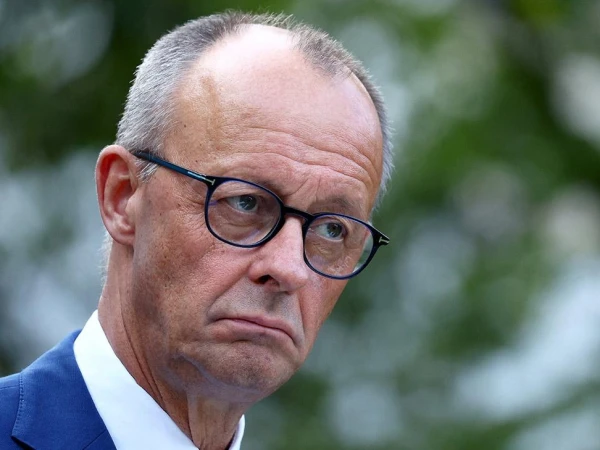
Garbage, crime, neglect - German Chancellor Merz linked the appearance of German cities to the large number of migrants. This outraged many, even the SPD. Despite the criticism, Merz did not retract his words.
Since the moment German Chancellor Friedrich Merz delivered his speech last week, which caused a stir in Germany, he has had several days to clarify what exactly he meant when he spoke on October 14 during his visit to Potsdam. At that time, the chancellor talked about tightening the immigration policy of the current government, which, as he expressed, would primarily aim to combat illegal immigration.
Then Merz added a phrase that has since been hotly debated in Germany: "But, of course, this problem still exists in the appearance of our cities." "Therefore, the Minister of the Interior is currently actively working to expand the possibilities for deportations," the chancellor continued.
Many observers and politicians considered this statement discriminatory. Representatives of opposition parties: the Greens and the Left Party, as well as the Social Democrats, who, together with the conservative CDU/CSU bloc, form the ruling coalition, accused the chancellor of spreading prejudices and exacerbating divisions in society.
Merz: The Problem in Cities Arises with the Onset of Darkness
On October 20, Merz met with journalists at the Berlin headquarters of the Christian Democratic Union (CDU), who asked him questions in an attempt to clarify his position regarding the controversial statement.
Should the head of government apologize to migrants? The chancellor looks at the questioner almost with a smirk, a slight smile playing on his lips as he responds: "I don’t know if you have children. And if among those children there are daughters, then ask them what I might have meant. I believe you will get a fairly clear and unequivocal answer. I have no intention of retracting my words."
Merz does not shy away from further questions and reiterates at the end: "There are many who say and assess (the situation. - Ed.). Once again: Ask your children, ask your daughters, ask your friends and acquaintances: everyone will confirm that this is a problem - at least with the onset of darkness."
The Chancellor of Germany and Migrants
This refers to the existing problem in German cities with high crime rates, including sexual harassment, with garbage and neglect. Especially at night. But if Friedrich Merz does not intend to retract his words, then, in his opinion, it turns out that migrants and refugees are mainly to blame for all this. After all, reducing the number of refugees is precisely the policy that Minister of the Interior Alexander Dobrindt must implement at the chancellor's request.
DW Street Poll: The Picture is Ambiguous
In recent days, the headlines of German media have been influenced by debates about the "appearance of cities" in Germany. What do the residents of Berlin think about Merz's words? On Friedrichstrasse in the center of the capital, one man responds to DW's question: "I don’t consider this statement successful. If I or you had expressed it that way, it would have been fine. But the federal chancellor should still choose his words a bit more thoughtfully, shouldn’t he?"
An elderly woman gestures toward a street partially closed due to construction and says: "Migrants do not create this urban appearance and do not put up all these signs. That’s just completely far-fetched." A young man adds: "Of course, problems with migration arise from time to time. But this can be discussed calmly and substantively." Another elderly man explains: "Many are painted with the same brush. Among them are poor and honest people, and there are those who simply use us. We need to make clearer distinctions."
The results of a nationwide representative survey published by the news portal t-online last week reflect a similar sentiment. In a survey conducted by the Civey social research institute among 2,500 respondents, 33% labeled Merz's statement as xenophobic, while 59% stated that it was not or was rather not so. Thus, the picture is mixed: there is criticism of the chancellor for his words, but there is also an understanding that Merz touched on an obvious problem.
Criminologist: Overall, Germany is Safe
Is there a problem with rising crime in Germany? DW asked this question in September in a conversation with criminologist Susanne Karstedt. According to her, there are certain areas with very high crime rates. For example, the area near the train station in Frankfurt has long been known for prostitution: "This has led to an increase in violence and drug-related crime," says the criminologist. And, as in many other countries, crime in cities is higher than in rural areas. But overall, Karstedt emphasized, Germany can be considered a very safe country: "Like in other Western European countries, the crime rate here has decreased since the 1980s and 1990s."










